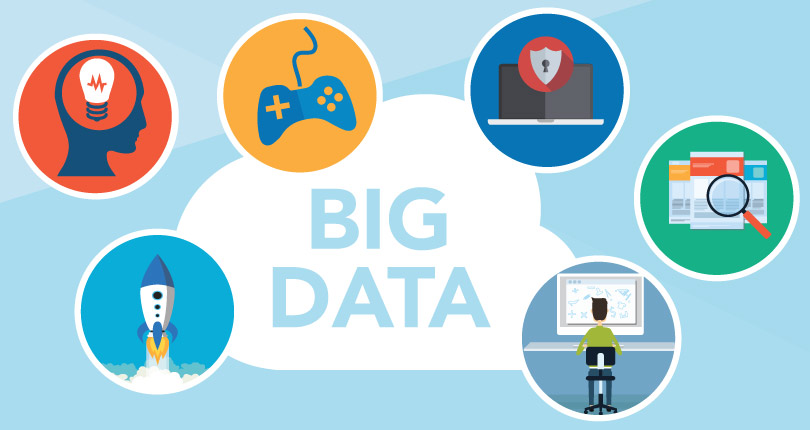
The lure of big data analytics is unmistakable and strong and with good reason. Businesses have quickly caught on to the numerous advantages big data can give them. The benefits and potential are tremendous, and companies are responding by freeing up more budget for big data endeavors. A survey from Gartner in 2014 indicated that an impressive 73 percent of businesses have invested or would likely invest in big data over the next 24 months. We’re now in the midst of that prediction, and big data adoption rates continue to grow. Though big data analytics remains complex, businesses of all sizes and types are hopping on board the bandwagon. Part of this is due to the wide variety of uses for big data. With the number of big data applications available, any company can find an innovative way to utilize it and see some of the highly touted returns for themselves.
Customer Insights
Businesses have spent a long time and lots of money trying to figure out what makes their customers tick. With the arrival of big data analytics, businesses can gain a detailed picture of individual customers faster and with greater accuracy. One of many applications of big data of interest to businesses is behavioral analytics, essentially finding out how customers act while online. This can help clue companies into what products they’re more inclined to purchase and what advertisements they respond to most positively. Through the use of clickstream data, the amount of information becomes staggering. Big data helps businesses construct what is often referred to as a 360-degree view of a customer. Based on these insights, companies are able to drive up sales, increase customer retention, and oversee more effective marketing campaigns, optimize content, among many other benefits.
Fraud Detection
This big data application is of particular importance to financial institutions, though any business could stand to improve its security by improving its efforts at detecting fraud. Big data opens up a number of new capabilities that organizations can leverage. Analytics helps companies identify irregular patterns within their networks. Big data can also help with identity verification, basically determining if accounts actually belong to the people requesting access. Also worth noting is the way big data aids in the development of risk profiles, showing where fraud is more likely to happen and helping companies take the needed measures to prevent it. That doesn’t even get into other capabilities like root cause analysis, data standardization, and time series analysis.
The Internet of Things
While the Internet of Things (IoT) may be a big data application geared toward the future, it’s still a monumental use case that could have more impact than anything that came before. The IoT is all about collecting vast amounts of data, analyzing it, and providing new services and insights. The range of possibilities that the IoT offers is nearly endless, from exercise wearables tracking how many calories people burn to connected cars able to drive themselves and avoid accidents and heavy traffic. All of this is made possible with big data and recent advances in analytics.
Predictive Support
Related to the Internet of Things, predictive support involves sensors placed within the equipment that collects data on how the mechanism is performing. With this information, analytics can with great accuracy predict when the equipment is likely to fail. This puts companies in an advantageous position to anticipate problems and act before they become big issues. Whether it means performing repairs or ordering parts, the amount of possible downtime is greatly reduced. Southwest Airlines, for example, uses predictive support for their planes. With big data, the airline can identify when a malfunction might occur and address the problem before it turns into a significant safety issue.
Better Gaming
While video games may seem like an odd area for a useful big data application, it’s actually prime territory for analytics and data science. Many video and computer games have turned to a free-to-play model with extra incentives for players who choose to pay for additional content (often referred to as microtransactions). Figuring out what content gamers will open their wallets for is a role of big data.
At the same time, behavioral analytics can tell game makers what players do with their time in the game, which can lead to improvements that will keep them coming back for more. It’s all in an effort to optimize the in-game experience and keep them playing for many months and even years after the game is first released. Equally important is how big data can then be used by game developers to create new games, ones that have been designed with gamer behavior in mind. The end result could be games that stand the test of time and remain popular and profitable for years.
Quicker Medical Trials
One big data use case often overlooked is the way in which big data can be used to reduce the amount of time needed to get a product to market. Drug companies have been able to employ big data analytics to cut down on the amount of time it takes to conduct clinical trials since big data allows them to perform simulations. One company — Bristol-Myers Squibb — says they were able to reduce clinical trial time by a whopping 98 percent. The result has to lead to optimal dosing levels, safer drugs, and fewer patient blood samples — a preferable choice for everyone involved. This also means getting potentially life-saving drugs to the market more quickly.
These are only a few select examples of various big data applications businesses have discovered. More are surely on the horizon as organizations become more familiar with big data analytics and all its capabilities. With such a wide range of options, it’s no wonder so many businesses have turned to big data to improve their operations and achieve new levels of success.



